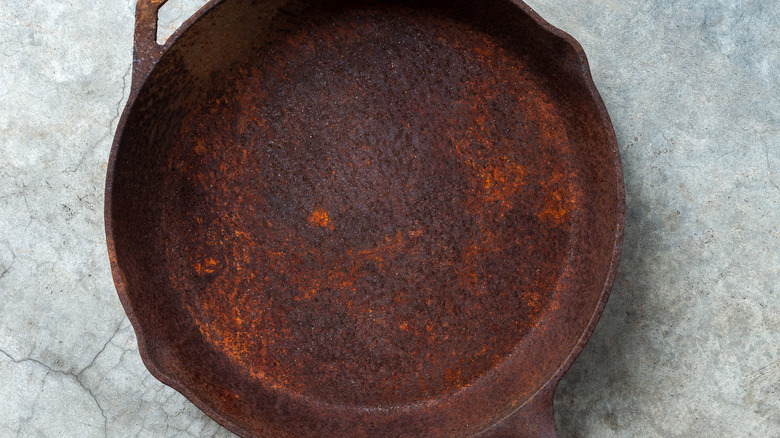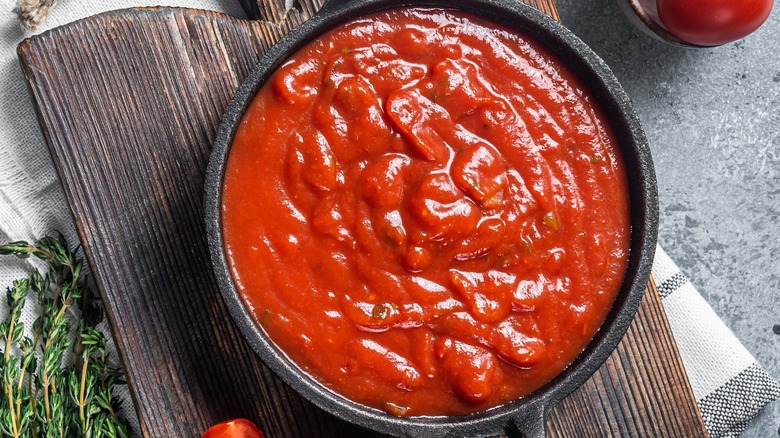How A Bit Of Ketchup Will Help To Clean Your Rusty Cast Iron Pan
It's heartbreaking when patches of rust develop on a beloved cast iron pan and adversely affect the flavorful seasoning that's been baked into the surface after years of careful use. Moreover, it's time-consuming to clean it well before you can safely season it again. Luckily, there's a no-fuss way to clean a rusty cast iron pan that doesn't require oodles of time and chemicals; smother it in ketchup. While it may sound odd, this pantry staple wicks away rust, making easy work of restoring a skillet to its original condition.
Rust can develop on cast iron cookware if it isn't dried thoroughly after use, or if it's been stored in a damp space. It also has an unpleasant odor and is unsafe to ingest so you must remove it from your pans before cooking. Ketchup removes rust because it's an acidic food with a pH of approximately 3.9. It contains inherently acidic ingredients, such as vinegar and tomatoes, explaining why it can trigger acid reflux or heartburn. In the same way that cola-flavored drinks containing phosphoric acid can remove rust, the natural acid in ketchup eats away at the iron oxide on cast iron pans so they can be restored to their former glory.
Ketchup is cheaper than expensive cleaning products
The main benefit of using ketchup to clean cast iron is that you'll likely have it on hand. Plus, a bottle of the red stuff is a cost-effective alternative to chemical-based detergents. To get started all you need is a wire brush, a touch of elbow grease, and a little time for the ketchup to work its magic on stubborn rusty surfaces.
First, liberally cover your cast iron in a layer of ketchup. You can squirt it on, spread it over with your hands, or use a pastry brush. For larger cast iron skillets, a clean paintbrush gets the job done fast. Leave the ketchup to sit for 20 minutes; the acid in the condiment will begin to wick away the rust so don't mess with it or shorten this step. As the ketchup eats away at the iron oxide it may turn a darker, maroonish shade. Once the time is up, clean your pan in circular motions using your wire brush or a scrunched-up piece of aluminum foil to dislodge any rust that hasn't been removed. Once the entire surface is clean, you should wash it, dry it thoroughly, and season your cast iron cookware once more to safeguard it from getting rusty again. Then you can use your freshly seasoned skillet to make delicious cast iron pan recipes, such as fluffy Dutch babies or shakshuka. Be mindful to dry your skillet after use so it's completely moisture-free before storing it.

